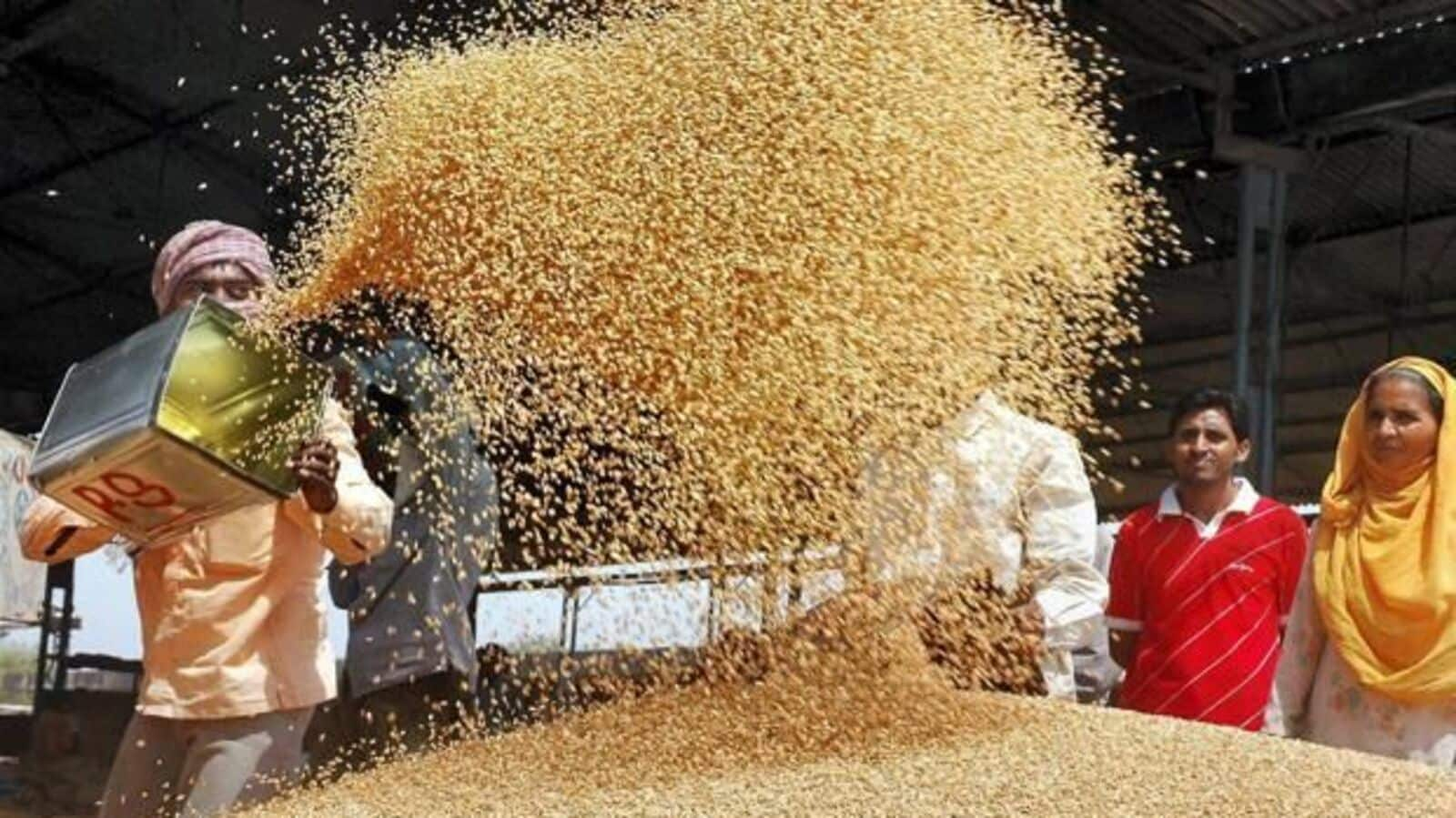New Delhi: The Union cabinet on Wednesday approved an increase in support prices of farm produce and an allowance for staff and pensioners, aimed at softening the impact of inflation ahead of Diwali. The government also cleared extra rail lines for two districts of Uttar Pradesh.
The cost of the minimum support price (MSP) for winter (rabi) crops approved on Wednesday works out to ₹87,657 crore. The Union budget has provided for a ₹2 trillion food subsidy for the current fiscal.
Union minister Ashwini Vaishnaw said at a briefing that the significant increase in support price for rabi crops for the 2025-26 marketing season was decided on the advice of an expert panel, keeping in mind the need for ensuring remunerative prices for farmers, the demand-supply situation and its effect on the economy.
The extra instalment of ‘dearness allowance’ to central government staff and ‘dearness relief’ to pensioners represents a 3% jump over the existing 50% of basic pay or pension. The increase will cost the exchequer an extra ₹9,448.35 crore a year, an official statement said.
This will benefit about 4.9 million central government employees and about 6.5 million pensioners. The increase in the allowance, meant to protect the recipient from the effect of inflation, is based on the Seventh Central Pay Commission’s recommendation.
The decisions come before the Maharashtra and Jharkhand state assembly elections scheduled for November, but Vaishnaw said they have nothing to do with the polls and that the MSP is always announced in the rabi season and dearness allowance and relief is always released around Dussehra and Diwali.
The Union cabinet also approved a railway project of expanding capacity at Varanasi and Chandauli districts in Uttar Pradesh at a cost of ₹2,642 crore.
For the six rabi crops—wheat, barley, gram, lentil/masur, rapeseed/mustard and safflower—the MSP has been raised so that the margin over cost of production is in the range of 50-105%.
The decision is meant for the welfare of farmers, the minister said. “That is why there is huge support for government policies among the farming community.”
Also read | Govt study predicts significant decline in yields of rice, wheat and maize by 2080 due to climate change
Siraj Hussain, former secretary to the government in the agriculture and farmers welfare department, said there is an obvious need to protect minimum support price of chana (gram), masur and mustard.
“Farmers did not realize MSP of mustard in previous rabi in the open market. I hope this year they will get it as the duty on edible oils has been raised,” said Hussain.
In the previous rabi season, market prices were below the MSP due to the excessive import of edible oils, as the duty was relaxed before the imposition of a 20% import duty from 13 September onwards, Hussain explained. The procurement of mustard was also limited, he said.
Rapeseed and mustard saw the highest increase in MSP in absolute terms, with a rise of ₹300 per quintal. This hike is particularly significant, reflecting the government’s intent to boost domestic oilseed production and reduce reliance on edible oil imports. Following this, lentil (masur) saw an increase of ₹275 per quintal, promoting pulse production to meet India’s domestic nutritional needs.
Wheat, a key staple crop, experienced a moderate MSP increase of ₹150 per quintal, offering farmers a 105% margin over the cost of production. This ensures that wheat remains a priority crop while maintaining profitability for producers. Meanwhile, gram saw an increase of ₹210 per quintal, while barley and safflower witnessed rises of ₹130 and ₹140 per quintal, respectively.
The rise in MSP is consistent with the 2018-19 budget’s commitment to setting MSPs at 1.5 times the all-India weighted average cost of production.
Production of pulses in the country has witnessed a decline from 27.3 million tonnes in FY22 to 26 million tonnes in FY23, and 24.5 million tonnes in FY24, according to data from agriculture ministry data.
According to the consumer affairs ministry, pulse imports have increased significantly in recent years, up 44% in calendar year 2023 to 2.99 million tonnes from 2.07 million tonnes in 2022.
Catch all the Business News, Politics news,Breaking NewsEvents andLatest News Updates on Live Mint. Download TheMint News App to get Daily Market Updates.
MoreLess












Leave a Reply